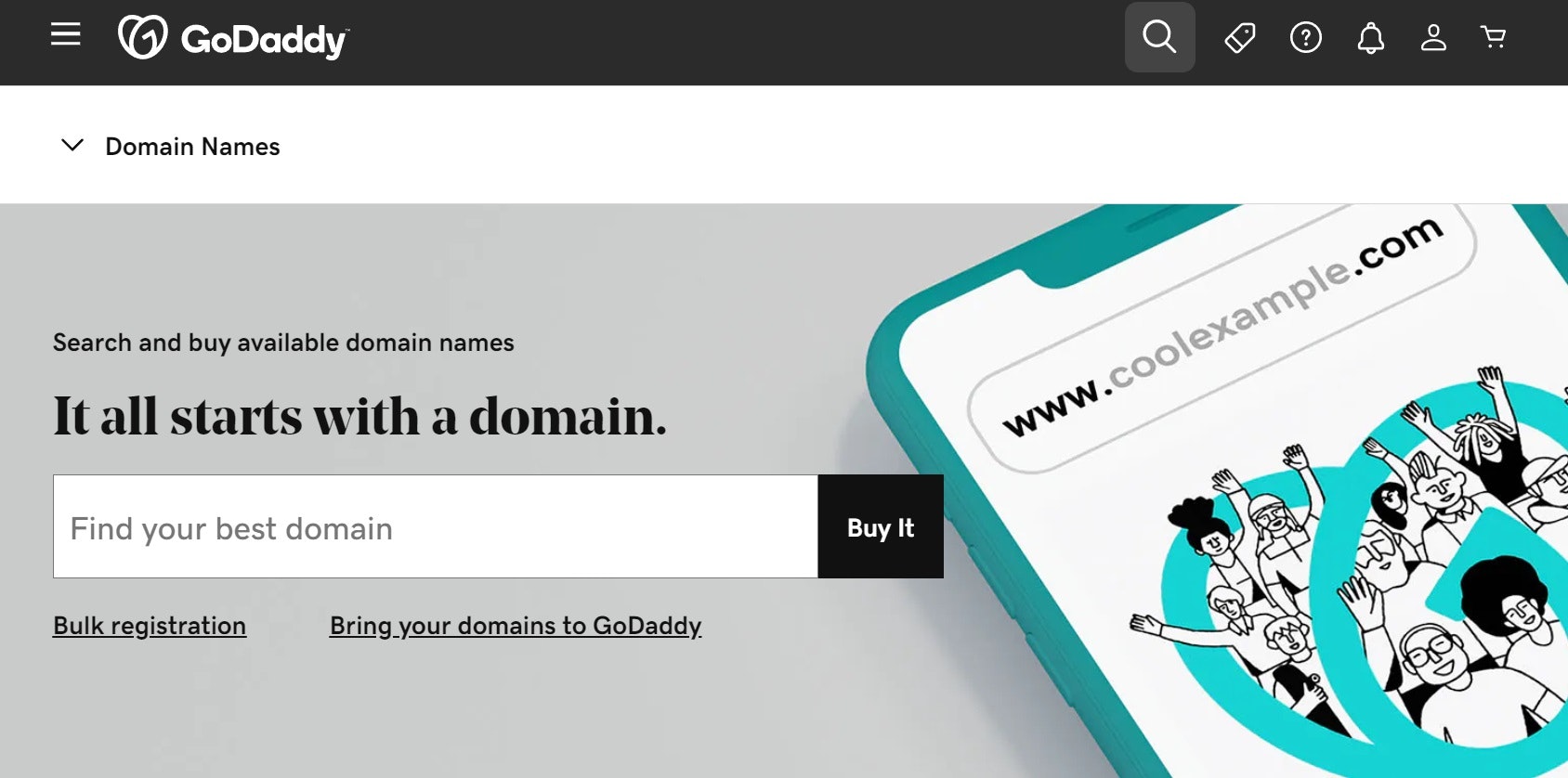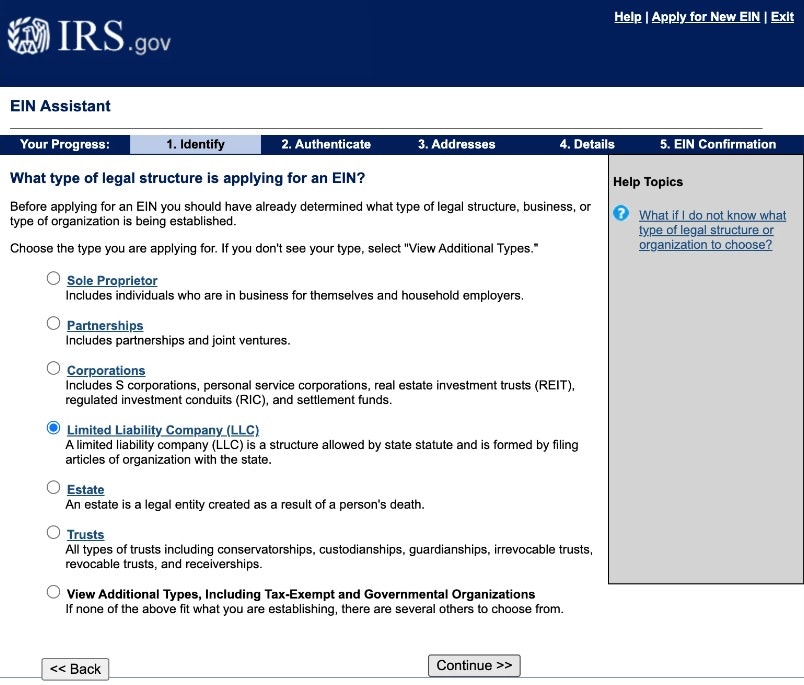Congratulations on taking the first steps tostarting a business! If you’re trying to figure out how to start an LLC (limited liability company), you’re in the right place.
You might be feeling a bit overwhelmed by all the details and requirements. That’s perfectly normal. And that’s why we’ve created this guide to take you through the basics you need to know.
From the pros and cons of an LLC to a step-by-step process for getting started, you’ll walk away with a core understanding of what you need to do next.
Just keep in mind that this isn’t legal advice—you’ll also need to do your own research and potentially consult an expert for guidance.



What is an LLC?
LLC stands for limited liability company. LLC owners choose this business structure because it’s a hybrid model of sorts—it combines elements of a corporation and a partnership or sole proprietorship.
有限责任公司的目的是保护责任:如果something happens to the company, such as a lawsuit or bankruptcy, the individual members and their personal assets are protected and separated from business debts and risks.

Benefits of forming an LLC
The two main benefits for LLC owners are limited liability protection and pass-through taxation. As we mentioned earlier, limited liability protection shields LLC owners from legal issues.
In pass-through taxation, the business profits and income aren’t taxed at a corporate level. Instead, the profits and losses “pass through” to each member individually, so they can avoid paying double taxes.
LLCs also offer flexible management, allowing either the LLC owners themselves to manage the business or for it to be run by managers they select. LLC owners also enjoy flexible ownership and transfer of ownership: they can assign and re-assign ownership to new members with minimal headache.
Drawbacks of creating an LLC
One of the drawbacks is self-employment tax: because owners are taxed individually and not as a business, they’ll likely need to pay self-employment taxes, which are typically higher than taxes for individuals on payroll.
Additionally, starting a limited liability company can be confusing. This is because laws vary from state to state, so there’s no single right way to get the job done. And, depending on which jurisdiction you’re in, your LLC may have a limited lifespan. If one of the members withdraws, passes away, or declares bankruptcy, the LLC may dissolve early.
Another drawback that LLC owners face is reduced credibility in the eyes of other stakeholders like investors or lenders, in comparison to a corporation like a C or S corporation.
How to start an LLC: 7 Steps
1. Name your LLC
It’s important to choose the right name for your limited liability company, as it’s the foundation for your brand and business entity. Think of a name that’s an accurate reflection of your identity as a brand.
The tough part is making sure that your idea is unique. While you can technically choose a duplicate name, it’s not unlikely that you’ll run into issues in the future if you run into other businesses with the same name. You’ll also want to be sure that it complies with state regulations.
Consider using a domain name checker to see if the name is available as a domain. This can help you narrow down your choices.

2. Get an EIN and check for taxes
The next step is to register your business with the government to obtain an employer identification number (EIN). You can think of this as a Social Security number for your business: it’s the unique number that the government uses to identify your company from the others, as well as for federal tax purposes.
To apply for an EIN,visit the IRS website here. Submitting an application is free and should only take about 15 minutes. You’ll receive your EIN number instantly.

Once you’ve completed this step, it’s time to look into your potential tax obligations. This will depend on the type of business you’re running, and from where you’re running it. For example, an ecommerce business may be liable for multiple types of tax, like sales tax, income tax, use tax, and value-added tax (VAT) if you operate in the EU.
3. Make an LLC operating agreement
The next step is to make an LLC operating agreement. While this isn’t required in every state, it can be a helpful document for you internally. This is especially true if there are multiple LLC owners.
An LLC operating agreement is something like an outline for your business structure. You can clearly assign certain roles and responsibilities, where business income goes (including how each owner is compensated), equity between owners, and more.
You can do this yourself or hire an attorney or your own registered agent to handle it for you.
4. Open a business bank account
If you don’t create a separate business bank account, your finances will become a mess. This is the best way to ensure that your business income is separate from your personal assets and finances, which will make life easier for everyone when tax time rolls around.
Opening a business bank account isn’t much different than opening a personal bank account. You’ll need basic details like your physical address and EIN number. Your bank of choice can help determine if you need any legal documents.
5. File the necessary paperwork
Depending on the location and nature of your business, you may need to submit additional paperwork as part of your articles of organisation. These LLC formation documents may include:
- Business licences and permits
- Insurance policies required for legal operation
- LLC operating agreement
- Workers’ compensation if you hire employees
6. Create a website for your LLC
Once you receive permission to start an LLC, you can build and launch a website. Use awebsite builderto create your design and publish your webpages. And make sure to include important information like whether it’s a single-member or member-managed LLC.
You can also use the site builder’s marketing tools todrive traffic to your site. Optimize your webpages to improve search engine ranking and run social media campaigns to build awareness for your LLC.
7. File an annual report
大部分州要求有限责任公司一年一度的必须文件report and pay a filing fee. The fees can vary from state to state, so it is advisable to consult the secretary of state for accurate information.
You can also inquire whether additional regulatory requirements apply to your LLC. For example, those in the CBD or food and beverage industry need to obtain a business licence if they want to operate legally.
All that’s left is to get started
It may seem intimidating, but learning how to start an LLC might be more simple than you think. Just be sure to do your research, as everyone’s situation can be different. This is especially true state to state—each has its own set of rules for liability protection.
If you’re feeling confused, consider reaching out to a business consultant or registered agent service to help you handle all the legal documents and create your business entity the right way. It’s an upfront investment, but it’ll be worth the peace of mind down the road!
How to start an LLC FAQ
How much does it cost to start an LLC?
The cost to start an LLC can range from $50 to $500, which includes the state's filing fee. Additional expenses may arise if you hire legal or business incorporation services, ranging from $100 to several thousand dollars based on complexity and location.
What’s the difference between a single-member and member-managed LLC?
A single-member LLC is owned by a single person who is solely responsible for the company’s day-to-day operations and decisions. A member-managed LLC, on the other hand, has multiple owners who mutually decide how to run the business.
What are the steps to getting an LLC?
- Select a name for your LLC.
- Get your EIN.
- Draft an LLC operating agreement.
- Open a business bank account.
- File the necessary paperwork.
- Create a website for your LLC.
What are the tax benefits for an LLC?
- LLC members avoid double taxation by paying personal income tax and receiving a share of profits.
- LLCs have the flexibility to choose their preferred tax classification.
- LLCs can avoid the 21% federal corporate tax by opting for pass-through taxation.






